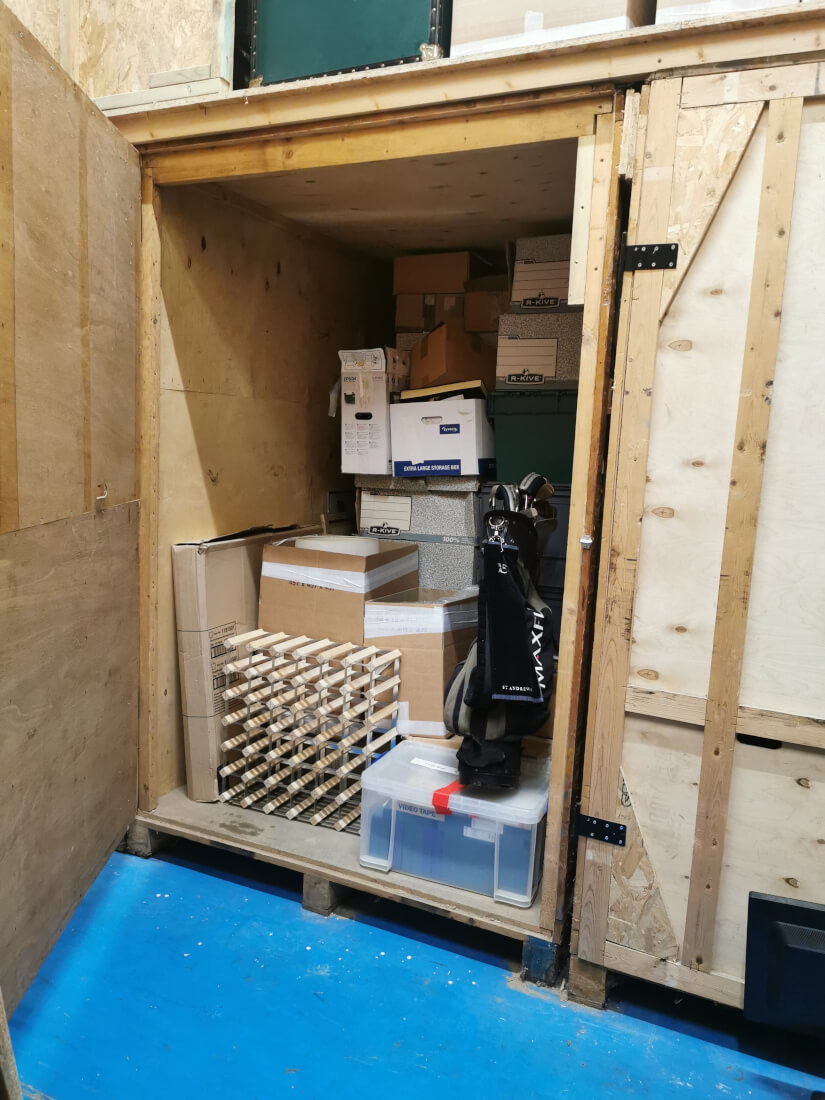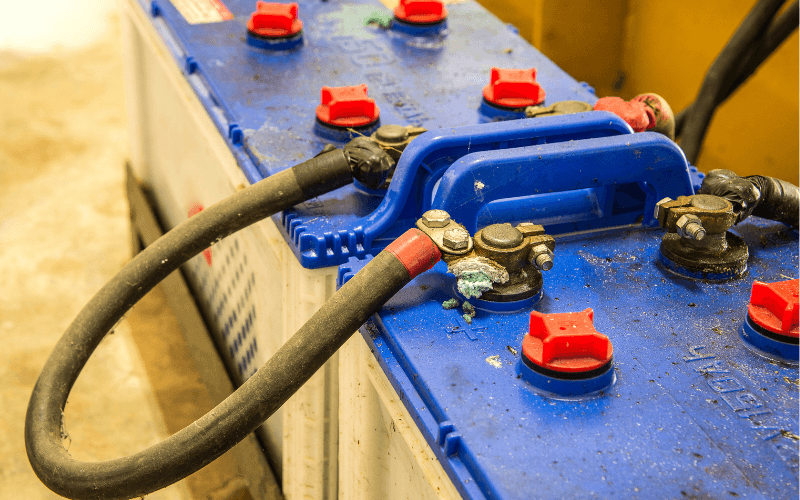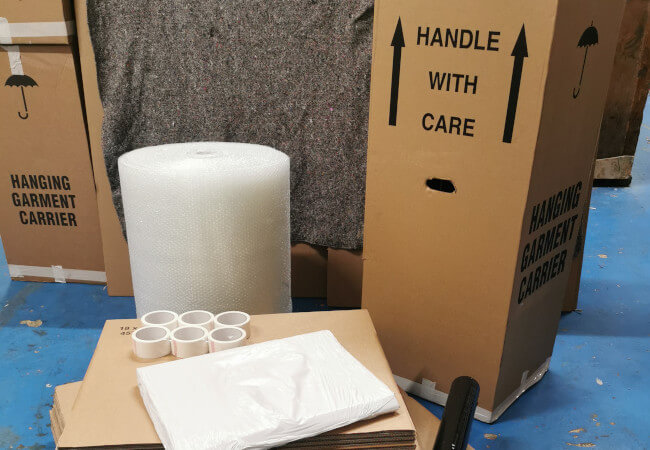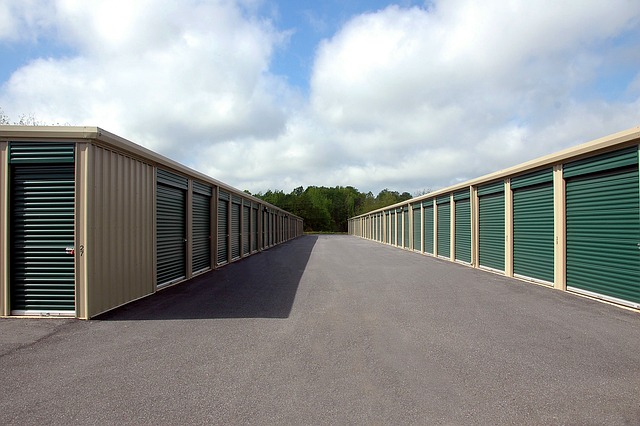What Should Not Be Stored In Storage?
Storage units are a convenient way to declutter your home, keep your belongings safe while you travel, or house items during a move. However, not all items are suitable for storage in these facilities. There are certain things that pose risks, either to you, to the storage unit, or to the items themselves. Below is a list of 20 items that you should avoid storing in a storage unit, complete with explanations on why they are a bad idea.
Do not store perishable food
Storing perishable food in storage units is a recipe for disaster. It can attract pests like rodents and insects, leading to an infestation that could affect not just your unit but also others nearby. The decaying food can also produce bad odours and cause mould growth, rendering the storage unit unsanitary. Additionally, many storage facilities explicitly prohibit the storage of perishable items due to these risks.
Meat and Poultry: Chicken, beef, pork, and other meats will spoil quickly without refrigeration.
Dairy Products: Milk, cheese, and yogurt need to be stored at a controlled temperature to prevent spoilage.
Seafood: Fish and shellfish spoil quickly and produce strong odors, making them unsuitable for storage units.
Fresh Fruits: Items like bananas, berries, and oranges will rot and attract pests if left unrefrigerated.
Fresh Vegetables: Leafy greens, bell peppers, and other fresh vegetables will wilt and decay over time.
Eggs: Fresh eggs require refrigeration to prevent bacterial growth and spoilage.
Bread: Freshly baked bread can mold quickly, especially in humid conditions.
Delicatessen Items: Cold cuts, sandwiches, and prepared salads can spoil and harbor harmful bacteria.
Cooked Food: Leftover meals like pasta, rice, and stews will spoil if not stored under proper conditions.
Baked Goods: Pastries, cakes, and pies containing cream or custard fillings can spoil and become hazardous to consume.
Flammable liquids
Storing flammable liquids like gasoline, oil, and paint thinner in storage units can pose a huge fire risk. Even a small spark from an electrical glitch could trigger a fire that may become uncontrollable. Not only would you be putting your own possessions in jeopardy, but you could also endanger other units and people. Most storage facilities strictly forbid the storage of flammable materials for these reasons. We do not allow it too!
Explosives
Keeping explosives, including fireworks and ammunition, in storage units is not only dangerous but often illegal. The risk of accidental detonation could result in catastrophic damage to the storage facility and harm to individuals nearby. Storing such items could also lead to legal repercussions, including fines or imprisonment.
Corrosive materials
Corrosive substances like acids or certain cleaning chemicals can leak or spill, causing damage to your belongings and potentially even eating through the floor of the storage unit. Due to their destructive nature, these substances are generally not allowed to be placed in our storage containers.
Sulfuric Acid: Commonly used in car batteries and some industrial processes, sulfuric acid is highly corrosive and can cause severe burns or damage to other items if it leaks.
Hydrochloric Acid: Used in various chemical reactions and industrial processes, hydrochloric acid can cause damage to metals and organic materials and poses a risk if spilled.
Sodium Hydroxide: Also known as caustic soda or lye, this substance is highly alkaline and can corrode metals and organic materials.
Nitric Acid: Used in various industrial and laboratory settings, nitric acid is highly corrosive and can react violently with other substances.
Bleach: While commonly used for cleaning, in concentrated forms, bleach is corrosive and can degrade metals and other materials over time.
Find out how much your move will cost. Movivan Removals offer home and office moving services, packing, storage and furniture disposal.
Hazardous materials
Materials that are chemically reactive, toxic, or biohazardous should never be kept in storage units. These can include chemicals like bleach, asbestos, or medical waste. These hazardous materials can leak or spill, endangering the safety of people who access the unit, and potentially causing contamination. It is both a legal requirement and common sense to avoid storing hazardous materials in storage units.
Plants can`t be stored in storage
Plants are generally not suitable for storage units because they require sunlight, water, and air circulation to survive. Storing plants in a dark, enclosed space will likely result in their death. Additionally, plants can attract pests, leading to potential infestations in the storage unit and causing a nuisance for neighboring units.
Animals and pets
It should go without saying, but animals and pets should never be stored in storage units. It’s not only cruel but illegal. Animals require proper care, including regular feeding, water, and exercise, which they can’t get in a storage unit. Even short-term confinement in such conditions is considered animal cruelty and could result in legal action.
Wet items
Storing wet items in storage units can lead to mold and mildew growth, which can damage your belongings and those in nearby units. The humid environment created by wet items can also compromise the structural integrity of the storage unit over time. Always make sure your items are dry before placing them in storage.
Sensitive documents
Sensitive documents such as passports, legal papers, and financial records should not be stored in general storage units. These items require a higher level of security than most storage units can provide. Additionally, in the event of a natural disaster or fire, these irreplaceable documents could be lost forever.

Heirlooms
While not always prohibited, storing sensitive heirlooms like old photographs or antique furniture in non-climate-controlled storage units is risky. These items can be damaged by fluctuations in temperature and humidity. To preserve these valuable items, consider alternative storage solutions that offer climate control and better security measures.
Illicit substances
Storing illegal drugs or paraphernalia in a storage unit is prohibited by law and can result in immediate eviction from the unit and potential legal consequences. Storage facilities often work with local law enforcement and may conduct periodic inspections, increasing the risk of discovery.
Cash and valuables
Storing cash or high-value items like jewelry in a storage unit is risky and not recommended. While many storage units offer security features, they can’t guarantee the same level of protection as a bank. The risk of theft or damage makes storage units an unsuitable option for storing valuable items.
Uncured wood furniture
Uncured wood furniture can attract pests or develop mold and mildew when stored in a storage unit. The porous nature of the wood can also absorb odours from the storage environment, making it less than ideal for long-term storage. Make sure wood furniture is properly treated before you ask us to store it.
Medical supplies
Medical supplies like certain medications or medical devices often require controlled storage conditions. Temperature fluctuations in a standard storage unit can degrade the efficacy of these items. If you have medical supplies that require storage, consult a professional for appropriate storage solutions.
Unsealed food items
Even non-perishable, unsealed food items like an open bag of dog food can attract pests. Once pests find their way into a storage unit, they can be very difficult to eradicate and may spread to other units. Always store food items in sealed, airtight containers if you must store them at all.

Batteries
Old or damaged batteries can leak corrosive acid, which could damage other items in your storage unit. Additionally, some batteries can catch fire under certain conditions. To avoid these risks, it’s best not to store batteries in storage units.
Water-based paint
Water-based paint can freeze and spoil in non-climate-controlled storage units. The freezing and thawing can cause the paint to separate or spoil, rendering it unusable. If you need to store paint, consider a climate-controlled unit and check the storage guidelines of the facility.
Personal Identification and Financial Information
While it might seem practical to store older files containing personal identification or financial information in a storage unit, doing so presents a significant risk. In the event of a break-in, this sensitive information could be used for identity theft or fraud.
- Passports
- Birth Certificates
- Bank Statements
- Credit/Debit Cards
- Tax Returns
Due to the sensitive nature of these items, it’s advisable to keep them in a more secure environment, such as a safe deposit box at a bank.
Tyres
In the United Kingdom, many storage facilities prohibit the storage of tyres due to various concerns related to safety and environmental regulations. Tyres are made from rubber compounds that can degrade over time, releasing hazardous fumes. These fumes can not only compromise air quality within the storage facility but may also pose a fire risk as certain rubber compounds can be flammable.
In addition, the storage of tyres is often restricted by waste management regulations, which classify used tyres as a form of waste that requires specialized disposal methods. Failure to comply with these regulations can result in legal consequences for both the storage facility and the individual storing the tyres. Therefore, it’s generally not permitted to store tyres in storage units in the UK.
Humans
Storing humans in a storage unit is not only illegal but also highly dangerous and unethical. Storage units are not equipped with the basic necessities required for human life, such as ventilation, sanitation, food, and water. Moreover, confining someone in such a space could be considered unlawful imprisonment or even kidnapping, leading to serious criminal charges.
Remember, before storing anything, it’s a good practice to consult with us to understand our specific guidelines and restrictions when using Movivan Storage. This will help ensure that you’re not only abiding by the law but also keeping your belongings in the best possible condition.
Follow Movivan Removals
Services
Packing and Moving
Bespoke packing services with prices starting from £65.00 per hour.
—
Removals and Storage
Get secure containerized storage for your belongings from £25 per week.
—
Office Moves
Flexible and affordable office relocation experts in London and beyond.






